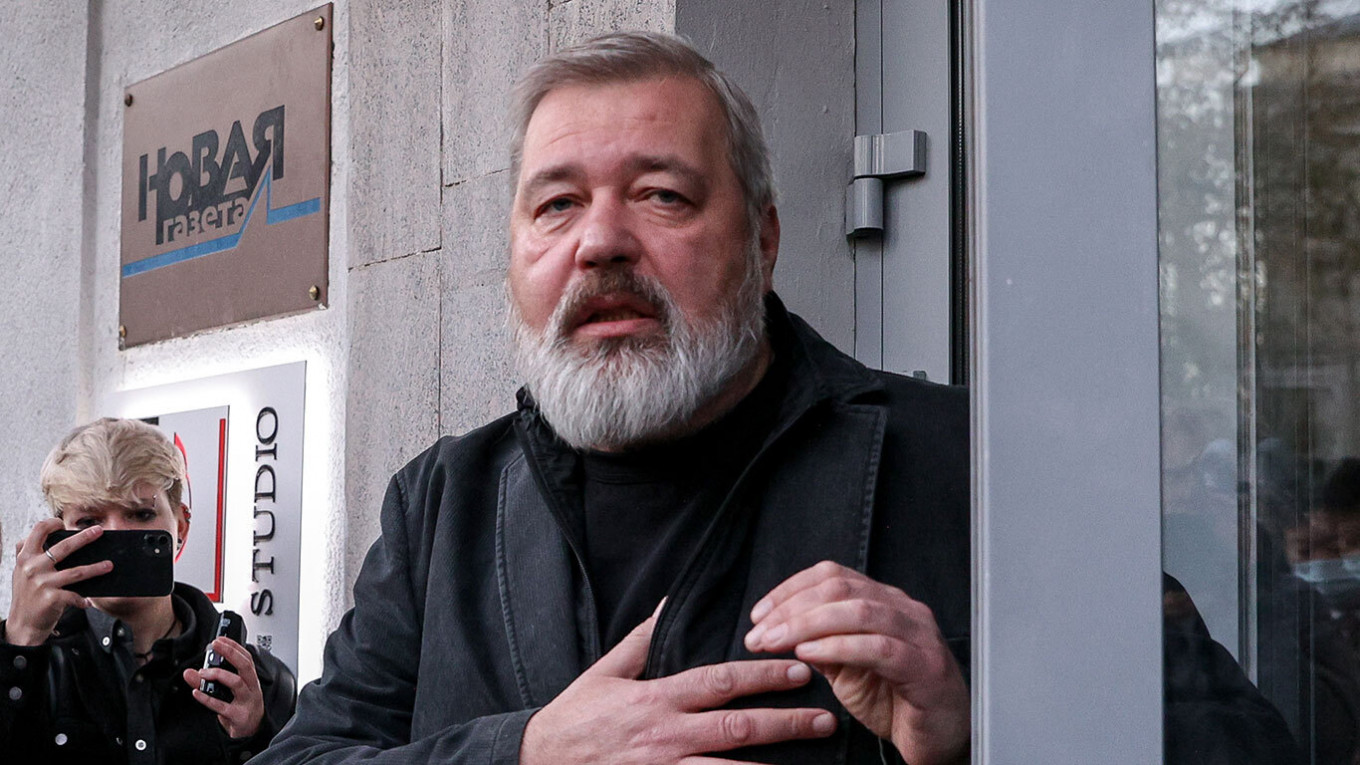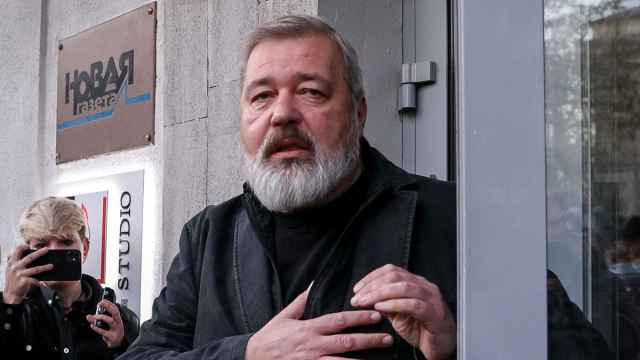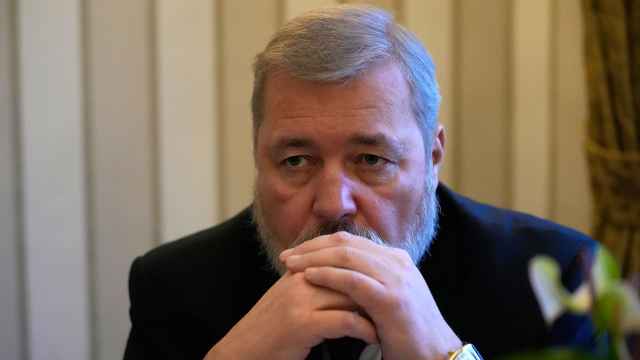President Vladimir Putin said Wednesday that the Nobel Peace Prize awarded to Russian newspaper editor Dmitry Muratov would not "shield" him from being branded a "foreign agent" if he breaks the law.
Muratov, chief editor of Russia's top independent newspaper Novaya Gazeta, last week won the prestigious award along with investigative journalist Maria Ressa of the Philippines for their work promoting freedom of expression.
The recognition for Muratov came as dozens of Russian journalists and a number of leading independent outlets have this year been hit with the "foreign agent" designation.
A term with Soviet-era undertones, the status forces individuals or organizations to disclose sources of funding and label all their publications, including social media posts, with a tag or face fines.
"If he does not violate Russian law, and if he does not give a reason to be declared a foreign agent, then he will not be," Putin said at a forum in Moscow.
But he warned the journalist against trying to hide behind the Nobel prize and "using it as a shield" to violate Russian law and "attract attention to himself."
Muratov was among a group of journalists who founded Novaya Gazeta in 1993 after the fall of the Soviet Union.
The paper has become one of the few remaining independent voices in a tightly controlled media landscape.
Kremlin critics say authorities are waging a campaign against independent and critical media, with many branded foreign agents and others forced to shut down.
After receiving the award on Friday, Muratov said he was not sure how it would influence "censorship." The same day, the Justice Ministry added nine more people to its list of foreign agents.
A Message from The Moscow Times:
Dear readers,
We are facing unprecedented challenges. Russia's Prosecutor General's Office has designated The Moscow Times as an "undesirable" organization, criminalizing our work and putting our staff at risk of prosecution. This follows our earlier unjust labeling as a "foreign agent."
These actions are direct attempts to silence independent journalism in Russia. The authorities claim our work "discredits the decisions of the Russian leadership." We see things differently: we strive to provide accurate, unbiased reporting on Russia.
We, the journalists of The Moscow Times, refuse to be silenced. But to continue our work, we need your help.
Your support, no matter how small, makes a world of difference. If you can, please support us monthly starting from just $2. It's quick to set up, and every contribution makes a significant impact.
By supporting The Moscow Times, you're defending open, independent journalism in the face of repression. Thank you for standing with us.
Remind me later.






